Fifty great examples of innovation, from people who have had a light bulb moment through to those whose work over many years has revolutionised how challenges in healthcare have been tackled

NOT FOR REUSE
Dr Muhammad Farhan Amin
Founder and director, Patient Memoirs
It was a chance encounter in Dubai airport that gave Dr Amin the idea for Patient Memoirs.
While awaiting a flight back to the UK, he noticed an older gentleman next to him was passing the time by writing continuously in a notebook. After two hours the intrigued Cumbria-based GP asked his companion why he was scribbling away so intently. The answer: the man had Parkinson’s disease, and had discovered his tremors were less noticeable to him and others while he was writing.
Dr Amin realised there were likely to be other patients with little tips on how to cope with difficult conditions, and so set up the Patient Memoirs website to allow them to be more easily shared. The site now contains almost 25 separate videos in which patients share their experiences, and has gained backing from Cumbria CCG.
- What the judges said: “The work he’s doing is really interesting and groundbreaking. He’s really out there on the edge.”
Frances Aviss
Engagement and communications lead, Dorset CCG
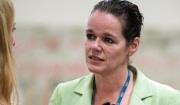
Ms Aviss describes herself as believing passionately in the value of public and patient involvement (PPI) in shaping healthcare services. Her work is the embodiment of that belief. At Dorset CCG, she leads efforts to engage the local population in service reviews and in commissioning.
She also supports those who do share their views: since May, she has coordinated the Supporting Stronger Voices forum, a group for local PPI representatives. And as Dorset County Council, Bournemouth Borough Council and the Borough of Poole join with NHS organisations to develop more integrated approaches, Ms Aviss is supporting elements of the engagement work.
- What the judges said: “It’s quite innovative to work on engaging patients in commissioning. She’s bringing patients into the domain of the CCG.”
Sarah Barclay
Founder and director, The Medical Mediation Foundation and co-director, The Evelina Resolution Project

During 20 years as a health and social affairs correspondent for the BBC, Ms Barclay encountered clinicians and families who were wrestling with difficult medical dilemmas - and who were often disagreeing.
After leaving broadcasting, she trained as a mediator and began to explore whether this might be a method of resolving such difficulties and keeping them out of court. The Medical Mediation Foundation was the result, established in 2010.
Since early last year, the organisation has been providing its services to The Evelina Children’s Hospital in London and hundreds of staff there have now been trained in finding ways to reduce conflict with parents. In the aftermath of the Ashya King story, the importance of this surely cannot be underestimated.
- What the judges said: “She’s trained 400 staff at Evelina Children’s Hospital in recognising, understanding and managing conflict. She’s now looking to scale up a restorative justice approach to mediation, which we think is really innovative.”
Chris Bates
Head of data and analytics, TPP and chief data scientist, ResearchOne
The healthcare improvement opportunities that might exist if private companies and academia collaborated are oft-discussed. In ResearchOne, there is a concrete example of the potential benefits. The project began two and a half years ago, when Mr Bates began a not-for-profit partnership with the University of Leeds.
The outcome is a health and care research database with de-identified data drawn from the records held on the TPP SystmOne clinical system. This year alone, Mr Bates has used the database to conduct research projects on frailty, cancer survival, and mortality.
- What the judges said: “This is really innovative work - and it’s not for profit.”
Adrian Bell
Chief executive, Kent, Surrey and Sussex Air Ambulance Trust
Last December, there was a change to the night skies above Kent, Surrey and Sussex. After several years of effort, the local air ambulance began operating overnight as well as during the day. It is a change that has saved many lives, and which required much work on the part of Mr Bell.
It is just one of many life saving innovations seen in the service under his leadership. Having the air ambulance agree rendezvous points with land crews has, for instance, decreased the time it takes to transfer critically injured patients to major trauma centres.
- What the judges said: “The work the organisation is doing is game changing.”
Tim Benson
Co-founder, R-outcomes
One of those nominating Mr Benson said the health IT expert “has a knack of being ahead of the curve and coming up with solutions to the big problems of the moment”. The latest of those are tools to track patient outcomes and experience across health and social care.
“howRu” and “howRwe” are two short questionnaires that use generic questions which apply across all sorts of care settings, meaning they can be used in a variety of organisations. howRu, for instance, has been employed in primary, secondary, community and social care, including in 400 care homes.
- What the judges said: “It’s a very challenging project but it’s having a significant impact and he’s trying to disseminate it widely.”
Dr Dickon Bevington
Consultant in child and adolescent psychiatry, Anna Freud Centre
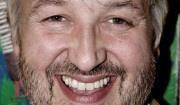
Dr Bevington is one of the brains behind a new, team-based approach to caring for adolescents with severe mental health problems. The model involves assigning to each young person a single field worker who, as well as being a therapist, acts as a point of liaison for the social, mental health, educational and youth justice services for that person.
It is an approach that is now being employed across the country, and producing real benefits: research on the Cambridgeshire Adolescent Substance Use Service found reductions in substance use and improvements in psychological wellbeing following the adoption of the model.
- What the judges said: “He’s trying to reach out to young people who tend to avoid seeking help, and is demonstrating some real efficacies.”
Reagan Blyth
Associate director of quality assurance and research, Pennine Care Foundation Trust
“I believe what Reagan has innovated will become a standard part of the health and social care of tomorrow.” Looking at the Living Well Academy originated by Ms Blyth, it’s difficult to disagree with that contention, made by a person who nominated her.
The project, a partnership between Pennine Care Foundation Trust, local authorities and the voluntary sector, serves as a “university” for those with long term conditions. It involves a series of educational courses, as well as an online social platform.
The idea is to help those with long term conditions, and their carers, to self care more effectively.
- What the judges said: “This is a great example of doing things differently.”
Professor David Brettle
Head of medical physics and engineering, Leeds Teaching Hospitals Trust
Professor Brettle is described as “constantly promoting cutting-edge innovation”.
As chair of the Institute of Physics and Engineering in Medicine’s research and innovation advisory group, he established research and innovation awards in 2012. These are said to have become an important method of early stage funding for speculative, local or short term research and innovation projects.
- What the judges said: “Important work.”
Professor Ben Bridgewater
Director of outcomes publication, Healthcare Quality Improvement Partnership (HQIP)
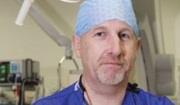
A consultant cardiac surgeon at University Hospital of South Manchester Foundation Trust, Professor Bridgewater leads the programme to collect, analyse and publish data on cardiac surgical outcomes.
That is significant in itself. But what really impressed our judges was his work at the HQIP where, since 2013, he has been leading work to publish clinical outcomes for nine other surgical specialties.
- What the judges said: “He is the driving force behind a huge number of national clinical audits. He’s bringing people along with initiatives to publish consultant-level outcomes, and is driving on the refinement and improvement of this data.”
Olivia Butterworth
Head of public voice, NHS England

In the form of the innovative NHS Citizen project, Ms Butterworth is leading NHS England’s efforts to “form a new culture of collaboration” between the organisation and the public.
The model remains in development but has already gained praise, interest and attention, not least during a recent session at the NHS England annual general meeting.
The ultimate aim is to give members of the public the ability not only to raise issues for discussion, but actually to hold NHS England’s board to account.
- What the judges said: “What she is doing around NHS Citizen is important and courageous. It’s not ‘the same old, same old’.”
Chris Carrigan
Director of the National Cancer Intelligence Network, Public Health England
Mr Carrigan founded the National Cancer Intelligence Network in 2008. The aim? To improve the collection and use of information about cancer patients, making new analysis and research possible - and, in turn, improved care and outcomes.
The network is now part of Public Health England, and is said to have transformed the availability of meaningful data about cancer.
One of those nominating him reported Mr Carrigan as well respected by cancer patients and carers “not because he tells them what they want to hear, but because he listens to what they want to say. And then he does what he can to act on what they say is needed.”
- What the judges said: “He is really changing things for people with cancer.”
Professor Mark Caulfield
Chief scientist, Genomics England
Professor Caulfield wears many hats: co-director of leading pharmacological centre the William Harvey Research Institute, director of the Barts and the London NIHR Cardiovascular Biomedical Research Unit and, since last year, chief scientist at Genomics England.
In all, he drives research that will lead to better treatments for patients, but it is perhaps the last title that is most significant in the context of top innovators.
- What the judges said: “Genomics is growing in profile and is going to be a huge area, but it has the possibility to scare people. Yet it isn’t, because Professor Caulfield is helping to drive it in an intelligent way. His idea of a clinical interpretation partnership is a brilliant one for using the data that the 100,000 Genomes Project will come up with.”
Professor Ruth Chambers
Clinical lead for telehealth, Stoke-on-Trent CCG and clinical lead for long term conditions, West Midlands Academic Health Science Network
Managing long term conditions is a complex challenge and, with an ageing society and increasing prevalence, one that isn’t going away or getting any simpler. Professor Chambers is exploring how technology could help.
She has developed a support programme that enables patients to communicate with clinicians through a text message-based telehealth solution. The telehealth solution is not new but the groups being targeted by Professor Chambers are, namely those whose lifestyle choices are affecting their health.
- What the judges said: “By changing clinical support for long term conditions, she is a pioneer in an area which lots of people talk about but from which they back off when the going gets tough.”
Laura Cleverly
Student nurse, Southampton University
Ms Cleverly is perhaps better known as Ninjabetic. That’s her Twitter handle, and the name of the blog the student nurse set up to support those who - like her - have diabetes.
She has since gone on to co-found popular weekly tweet chat @OurDiabetes. In her role as digital literacies champion for the Faculty of Health Sciences at Southampton University, she is also encouraging others to explore the role social media can play in healthcare.
- What the judges said: “It’s great a young person is promoting and exploring the value of social media in the care arena.”
Dr Piers Clifford
Consultant cardiologist, Buckinghamshire Healthcare Trust
Last October, Buckinghamshire Healthcare Trust became the first in the county to offer Care4Today Heart Health Solutions, a new cardiac rehabilitation programme.
Among the impressive outcomes: waiting times between having a heart attack and beginning cardiac rehab have fallen from 58 days to 35 days, and 98 per cent of patients have said they would be likely to recommend the service.
One of those nominating Dr Clifford reported that “his vision and drive” had been instrumental to this success, just as it was to the introduction of a cardiac and stroke receiving unit at Wycombe Hospital. The unit provides a 24 hour “front door” for patients who have a suspected stroke or cardiac condition, ensuring they receive speedy assessment from specialist clinicians.
- What the judges said: “He has clearly been a pioneer in this area for a number of years, and is someone who is looking at possible new treatments for patients.”
Charlotte Bailey and Jennie Collier
Strategic lead, Staffordshire County Council (Bailey) and head of specialist and family services directorate (Collier), South Staffordshire and Shropshire Healthcare Foundation Trust
When two CCGs in Staffordshire proposed recommissioning local child and adolescent mental health services, Ms Bailey and Ms Collier took the opportunity to find new ways for their organisations to work together.
The result, colleagues said in a joint nomination, was that “services in both the council and the trust have stepped away from their traditional ways of operating, creating a more integrated service for young people with much faster access.”
- What the judges said: “These are people who are not directly involved in clinical care but who are tackling some really difficult clinical areas. They are challenging traditional ways of delivering services; integrating services and bringing together organisations. Those are very difficult things to do, but they are keeping everything focused on the recipient of care.”
Richard Corbridge
Chief information officer, National Institute for Health and Research Clinical Research Network

A popular nominee, Mr Corbridge is seen as having significantly advanced the clinical research agenda in the NHS. In 2012, it took an average of 122 days for a clinical trial to start. Today, thanks in part to the improvements in information systems Mr Corbridge has led, it takes 21 days.
As one of those nominating him put it: “Richard is incredibly passionate about the use of information and is one of the few visionaries who can see through the cloud of discussion around big data and how to harness it.”
- What the judges said: “He does really transformational, pioneering work. He’s transformed the way research is undertaken.”
Nicholas Cork
Chair of student committee, Royal Society of Medicine
The traditional view of medical students has tended to be they should be learning about healthcare rather than sharing views on how to improve it.
Mr Cork, a fourth year medical student, is challenging that. He has founded and chairs the RSM Student Think Tank, working with his fellow members to explore ways medical trainees could better contribute to good care. They are currently preparing a report on the student role in excellence.
- What the judges said: “He’s a really inspirational young guy doing such innovative work.”
Dr Alison Cracknell
Consultant in medicine for older people, Leeds Teaching Hospitals Trust
“Patient safety champion and geriatrician” is how Dr Cracknell describes her work. It is revealing which title she places first, and it is her work to improve quality which sees her recognised as an HSJ Top Innovator.
Under her leadership, the team on the acute medicine unit at St James’s Hospital has reduced inpatient falls by 50 per cent over just a few months. A new, multidisciplinary approach means high risk patients are identified and simple, individualised action taken to reduce risks.
- What the judges said: “She is reducing falls in older people, which must enhance lives in a truly profound way.”
Professor Maxine Craig
Head of organisation development, South Tees Hospitals Trust
One of our judges, Professor Craig stepped out of the room as her nomination was considered. Her judging colleagues didn’t deliberate for long before voting her an HSJ Top Innovator for the second year in succession.
The former nurse moved into organisational development in the mid-1990s and is now seen as the leading thinker in the country on its application in healthcare. She leads all service improvement and leadership development programmes in her trust, and is said to make a real difference.
- What the judges said: “If every trust in the country was doing what she is doing in South Tees, we would be in a much better place.”
Sheila Davies
Parent carer participation manager (health), Contact a Family
The vast majority of people find hospital visits stressful. But imagine the additional stress if you are a child with a disability, or the parent of that child. Ms Davies spends her working life doing just that - and then working with parent carers and healthcare professionals to find ways to reduce the pressure.
At Royal Manchester Children’s Hospital, for example, a special quiet waiting room for children on the autistic spectrum has reduced the numbers of youngsters with autism refusing treatment.
- What the judges said: “I think it’s fantastic work. She is starting from the perspective of patients and carers, and helping to build systems around them.”
Dr Jugdeep Dhesi
Consultant geriatrician and clinical lead, POPS, Guy’s and St Thomas’ Foundation Trust
As co-founder of the proactive care of older people undergoing surgery service (POPS), Dr Dhesi can lay claim to an idea that has had national and cross-specialty impact. There is a considerable body of evidence pointing to the high rate of significant post-operative complications in older people.
The multidisciplinary POPS team reduces that rate by seeing patients before and after surgery, and exploring physical, psychosocial and functional wellbeing. Dr Dhesi has been asked to develop local and national guidance as a result.
Said one of those nominating her: “Dr Dhesi merits inclusion due to her tireless work establishing new ways of working across established surgical pathways, benefiting both safety and the clinical experience of the patient.” Our judges agreed.
- What the judges said: “We will all be frail older people sooner or later. She is bridging gaps and is working in an area which doesn’t always get the interest it should.”
Boda Gallon
Chief executive, Keiro Group
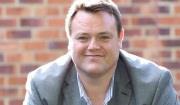
The slogan of Keiro Group is “healthcare and innovation”, which must surely make its chief executive an obvious HSJ Top Innovator candidate. The organisation Mr Gallon leads provides neurological rehabilitation services, and works with a variety of organisations to meet its mission of helping people retain their independence.
The Gateway Care Home, which it opened this year, is an excellent illustration of the model: as well as rehab, it has transitional housing run in partnership with a not-for-profit housing association.
- What the judges said: “He is forcing sectors to work together in finding new approaches to care.”
Sam German
Programme director, Healthy Villages, Birmingham Community Healthcare Trust
The Healthy Villages programme brings together Birmingham’s council, NHS, third sector, academia, industry and communities to offer more joined up care for local people aged 65 and above. Its director is said to be crucial to its success.
“Sam has been instrumental in bringing people and organisations together,” reported one of those who nominated him. “He ensures it results in positive outcomes which are making a real difference to the lives of patients and service users.”
- What the judges said: “He is putting older people at the centre of health and wellbeing.”
Dr Fiona Godlee
Editor, The BMJ
By definition, the British Medical Association is a doctor-centric organisation. But the editor of its journal is determined to involve patients - and is succeeding.
The BMJ is the first medical journal to have received “Patients Included” certification, the result of initiatives including inviting patients to act as peer reviewers for pieces submitted for the journal.
- What the judges said: “What she has done is really remarkable. All research papers in The BMJ now have to have patient input, and for that alone she deserves a lot of credit.”
Tal Golesworthy
Technical director, Exstent Ltd
As well as being one of HSJ’s Top Innovators, one suspects Tal Golesworthy would be an extremely interesting dinner party guest. After all, it’s not just anyone who finds a way to solve their own potentially serious heart problem - particularly if the person in question isn’t medically qualified.
Mr Golesworthy is an engineer who had spent his life working in research and development in combustion and air pollution control. But when faced with a dilated aorta as the result of a genetic condition, he turned his attention to bio-engineering.
The device he created has now been used in 40 people - its inventor included - and prevents the need for the anticoagulation therapy associated with traditional surgery. Innovator, ideal dinner party guest, and game changer.
- What the judges said: “It’s a really inspiring story. It’s not often a patient brings about an innovative change that gets NICE approval.”
Dr Amir Hannan
GP and clinical lead, long term conditions, information management and technology, and patient engagement, Tameside and Glossop CCG
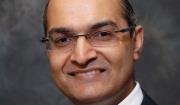
Previously named as one of HSJ’s Rising Stars, Dr Hannan is a passionate advocate of giving patients access to their own medical records.
Some 2,500 patients at Haughton Thornley Medical Centres in Manchester, where he practises, have online access to their GP records. And as a founder member of the Records Access Collaborative, he is working to ensure patients outside his patch have the same opportunity.
- What the judges said: “He’s pushed for open access to data for patients, and now he’s looking at gamification and other tactics to engage the older population in their own healthcare.”
Zoe Harris
Founder, Care Charts UK
When Ms Harris saw a carer trying to give her husband Geoff a cup of tea, only to have it repeatedly batted away, she immediately knew what the problem was. It hadn’t been made the way he liked it. The problem was Geoff, who had dementia, couldn’t verbally communicate his preferences.
It inspired Ms Harris to create a simple chart with this information and other small important details, about her husband. Now people across the country benefit from such charts, which are manufactured by her social enterprise Care Charts UK.
- What the judges said: “In response to her and husband’s experiences, she has invented a great product which is now used by lots of hospitals and care homes.”
Dr John Havard
GP, Saxmundham Health, Suffolk
One of those who nominated Dr Havard admitted most of the projects he has originated have not quite worked. “But others have, and saved the NHS money. He has an unstoppable drive to keep trying new things.”
One of his successes has been the “i-van”, a mobile one-stop glaucoma clinic that brings care closer to patients in rural east Suffolk. It saves the local CCG over £100,000 a year.
He is now working on a trial he has called Facelook, which is using a set-top box to make it simple for older people to receive Skype calls. BT and the British Red Cross have become involved in the project, and the hope is that it will reduce social isolation.
- What the judges said: “A really innovative, cool project.”
Robin Holmes
Medical imaging physicist and post-doctoral research fellow in medical physics, University Hospitals Bristol Foundation Trust
Computerised image analysis is an increasingly important way of identifying potential abnormalities in a patient’s body. But it is of course vital to ensure any abnormalities detected are genuine, and not the product of an issue with the scanner. That is where phantoms come in.
These are test objects used to check medical imaging systems are used correctly. The problem is they are often expensive. So Mr Holmes and his team have turned to 3D printers to produce realistic brain phantoms at low cost.
With better phantoms, scan reporting improves, which reduces uncertainty and enabling problems to be diagnosed sooner.
- What the judges said: “To be using 3D printers, a disruptive technology, to enhance screening is fantastic.”
Jen Hyatt
Chief executive and founder, Big White Wall
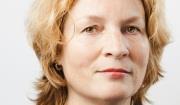
A second year as an HSJ Top Innovator reflects the impressive way in which Ms Hyatt’s online community for mental and emotional health has developed in the past 12 months.
Big White Wall is now available in new countries across the world, but it also has new services. She has been named this year as a “woman to watch” in US health. Here in the UK, we already have been.
- What the judges said: “Hers is the only British company in TEDMED, which is extremely impressive. She’s continuing to innovate, gaining international recognition, and is playing an important role in promoting the involvement of women in what can often be the hostile environment of technology.”
Samantha Jones
Chief executive, West Hertfordshire Hospitals Trust
Already one of HSJ’s Top Chief Executives, Ms Jones now becomes one of our Top Innovators.
Our judges were particularly impressed by “Operation Onion”, her method of unpeeling what is really going on in her organisation. At least twice a week, she tours the trust and has open conversations with staff in which there is no hierarchy and no blame. It’s an idea that has gained considerable interest and praise.
- What the judges said: “She’s taken over quite a troubled trust and is making a big difference there, taking a fairly conservative consultant body with her. She’s pioneering, brave, and courageous.”
Tim Kelsey
National director for patients and information, NHS England
Tim Kelsey probably has as many critics as supporters, and the Care.data controversy has likely only served to increase the vehemence of both groups. But no one would deny he is an innovator.
As a co-founder of Dr Foster, he pioneered the publication of mortality data and other healthcare outcomes. At the Cabinet Office and now NHS England, he continues to explore the power of better information.
- What the judges said: “He’s a controversial figure, but he started many of the debates that are coming to fruition now. There’s a whole new wave of ideas likely to come from him that are just as influential as the previous ideas he’s had.”
Dr William Lumb
Chief clinical information officer, Cumbria CCG
Dr Lumb is a firm believer in the difference technology can make to patient care. He is using it as the method of driving integration across Cumbria, and of supporting important changes like the introduction of true seven-day services.
Said one of those nominating him: “As one of the most experienced, respected and committed CCIOs nationally, Dr William Lumb has and continues to lead the way in delivering better healthcare through technology - and at the actual point of care, where it matters most.”
- What the judges said: “He’s leading from the front on use of data, and getting things done.”
Professor Martin Elliott and Parker Moss
Co-medical director, Great Ormond Street Hospital for Children Foundation Trust (Elliott) and former head, digital strategy and transformation (Moss), Great Ormond Street Hospital for Children Foundation Trust
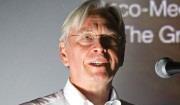
Another joint nomination: Professor Elliot has long been exploring the value of better use of technology and information management can have within a hospital - not least for his young patients; Mr Moss, meanwhile, is a career technologist.
When his daughter was diagnosed with neuroblastoma, an aggressive childhood cancer, he left his job in telecommunications to spend time with her while she was treated at Great Ormond Street. There was a meeting of minds, and Mr Moss had soon joined the trust as a pro-bono adviser on tech.
He went on to develop their strategy for going paperless. Both Professor Elliot and Mr Moss are innovators in their own right, but it was this interesting combining of expertise that particularly caught our judges’ attention
- What the judges said: “Professor Elliott is looking at how technology can support the long term, 15-20 year relationships with children who have been through GOSH. And in Mr Moss, the trust has had a parent advising on tech.”
Dr Mark Newbold
Chief executive, Heart of England Foundation Trust
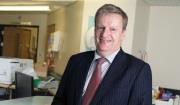
It is not difficult for his staff to find out how Dr Newbold is spending his week - nor, for that matter, is it hard for anyone else to find out.
The chief executive of one of the largest hospital trusts in England publishes his diary on his blog, and includes a commentary on the issues that have cropped up during his working week. It is just one example of how Dr Newbold uses social media to try to foster openness in his organisation.
- What the judges said: “Publishing his diary every week is a really open way of working, and very different to the way in which chief executives typically behave.”
Dr Alan Nye
Director, Pennine MSK Partnership
Long before CCGs came along, musculoskeletal patients in Oldham were benefiting from a clinician-led organisation.
The Pennine MSK Partnership was established in 2006 and now controls the entire £23m musculoskeletal services spend for Oldham CCG. Dr Nye is one of the driving forces behind the partnership, who is said to have overcome challenges with “vision, perseverance and strong leadership skills, as well as nous and pragmatism, to establish what became a groundbreaking service for MSK.”
Many others have sought his support in setting up a similar model in their own local area. In Oldham, it has led to £1m savings for the CCG in one year.
- What the judges said: “He was a really early mover in creating clinically-led organisations.”
Ruth Owen
Chief executive, Whizz-Kidz
Thanks to the Whizz-Kidz Child in a Chair in a Day model, 70 per cent of disabled children seen by the charity are able to take their wheelchair home on the day of their assessment.
It is an innovation which has gained widespread praise - it was identified as a high-impact intervention in the government report Innovation, Health and Wealth - but what really impressed our judges was that Ruth has sustained the innovation, leading its scaling up across the country. She is, they agreed, “a real force of new thinking”.
- What the judges said: “The innovations she leads have a very high impact factor.”
Rachel Pearce
Managing director, Arden CSU
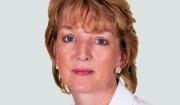
Recognising the potential of social ventures in healthcare, Ms Pearce joined with think tank The Young Foundation to launch a year-long programme to support such organisations. The aim was to help connect high-potential social ventures with CCGs, so finding new solutions to local health problems.
“As a result of Rachel’s work,” said one of those nominating her, “third sector and community organisations have a better understanding of CCG priorities and pressures, while CCGs have an improved understanding of the skills and expertise available in the third sector.”
One social venture involved in the programme has already won a contract to deliver health services in the area.
- What the judges said: “She’s looking at how alternative services provided through social innovation can supplement what CCGs are doing. It’s outside the normal way of delivering care. She’s bringing different resources into it, and I can’t think of anybody else doing it systematically and at that scale.”
Gill Phillips
Creator of Whose Shoes?, Nutshell Communications
A newcomer to our Top Innovators list, but we previously recognised Ms Phillips as one of HSJ’s Inspirational Women for her work to help healthcare professionals understand what it’s like to walk in other people’s shoes.
Her training board game Whose Shoes? brings together colleagues from all levels and areas of an organisation to consider person centred care, particularly for those with dementia.
- What the judges said: “For someone with a social care background to be selling services into healthcare is innovative in itself.”
Dr Jem Rashbass
National director for disease registration, Public Health England
Dr Rashbass was one of our most popular nominees: 15 separate people put him forward, united in their belief that this former pathologist is proving the value of big data in healthcare.
He received particular praise for his development of the National Cancer Registration Service for England - “he has transformed cancer registration from a series of semi-isolated fiefdoms and IT systems into a national service that it is one of the best in the world,” said one nominee.
The system now contains high quality data on every primary cancer diagnosis in England, and is used daily by researchers over the world to understand what makes a difference to cancer survival rates.
- What the judges said: “You don’t get many prizes for putting databases together, but Dr Rashbass deserves recognition - not just for putting the data together, but in recognition of what has been done with the data afterwards. He is responsible for respected data which people are using day in, day out.”
Carol Read
Innovation lead, Salisbury Foundation Trust
More than 20 years ago, staff at Salisbury District Hospital developed a cream for patients recovering from burns and surgery. Thanks in large part to the vision of Ms Read, it is now commercially available around the world, with 100 per cent of the profits reinvested in patient care at the organisation.
Said one of the many who nominated her: “Her personality somehow draws you in to the world of innovation and you just can’t help but become involved through admiration and inspiration.”
- What the judges said: “The sunflower cream [My Trusty Little Sunflower Cream] project was great, and she’s worked on many other innovations as well.”
Michael Seres
Patient advocate and inventor of Ostom-i
In his late 30s, Mr Seres became the 11th person in the UK to have a small bowel transplant. As he came to terms with having a stoma, he realised how difficult it was to know when his ostomy bag was full.
It was especially problematic when he was asleep, and he had the additional complication that his transplant team needed him to keep records of the volume and timing of output.
All of this, he says, “led to 2am showers due to overflows and emptying my bag into measuring jugs”. So he developed a sensor that clips on to any ostomy bag, collecting data as the bag fills and transmitting it to an application on the patient’s mobile phone.
The data can be e-mailed to healthcare staff, and the app alarms when the bag needs emptying. His invention has improved life for many of his fellow patients, as has his strong presence on social media.
- What the judges said: “He should be supported and recognised.”
Dr Tony Shannon
Chief clinical information officer, Leeds Teaching Hospitals Trust
“Shared information. Better care for you.” That’s the slogan of the Leeds Care Record project, which is creating a single care record for patients in the local area.
It is not a unique idea - other parts of the country are doing something similar - but what is unprecedented is that the system is open source. Dr Shannon has been key to this approach, which means other organisations can use the code at the centre of the software.
- What the judges said: “It’s a potentially scalable solution that is being driven from within the NHS rather than by an external organisation.”
Dr Jonathan Sheffield
Chief executive, National Institute for Health Research Clinical Research Network
Need to find out which clinical trials are happening in your area? Thanks to Dr Sheffield, there’s an app for that.
The chief executive of the NIHR Clinical Research Network is pioneering a variety of methods which make it easier for patients to get involved in research funded and led by his organisation.
- What the judges said: “He is doing really interesting work around patient involvement in clinical trials. He’s bringing very new, fresh, innovative thinking to this.”
Richard Steyn
Consultant thoracic surgeon and associate medical director for surgery, Heart of England Foundation Trust
Mr Steyn has developed a series of computer models to understand some of the most pressing issues in healthcare today - waiting lists and waiting times, patient flow and safety among them. His aim is to support discussions about how to improve and redesign clinical systems.
According to one of our judges, “at the moment, he is so far ahead that people almost don’t get it. But in 10 years’ time, everyone will be doing what he is doing now.”
- What the judges said: “He is doing amazing, world class work on demand and capacity and patient flow.”
Dr Geraldine Strathdee
National clinical director mental health, NHS England
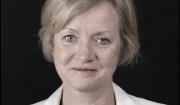
Parity of esteem for mental and physical health is a frequently discussed idea. Thanks to Dr Strathdee’s efforts, it is said to be embedded into every part of NHS England.
She continually strives to find ways to improve care for those with mental ill health, and makes clear all such services need to have the patient at their heart.
- What the judges said: “It’s her tenacity which has kept mental health on the agenda at NHS England. She’s a force to be reckoned with.”
Dr Ann Sullivan
Consultant physician in HIV and genitourinary medicine, Chelsea and Westminster Hospital Foundation Trust
Almost a quarter of people in the UK with HIV are unaware they have it. Dr Sullivan is working hard to reduce that rate and, as one of those nominating her put it, “has shown what can be done in what was for a long time parked in the ‘too difficult’ box.”
One of the most significant of her innovations is the CODE Clinic, a service for gay men who use drugs to enhance their sexual experience - the group at the highest risk of HIV acquisition.
Dr Sullivan secured the resources to set up the clinic, which also involves professionals from London Friend, a charity which supports LGBT health and wellbeing.
- What the judges said: “Her work is impressive because it has impact not just within her trust - she’s got commissioners on her side as well to commission new services for the people she cares for.”
Peter Thomond
Managing partner, Clever Together
Said one of those nominating him: “Pete recognises that in a world where all organisations need to do more with less, it is essential that the power of the crowd is used to better effect.”
The Clever Together platform has helped important healthcare organisations including Monitor to understand the views of their employees, and gather their ideas of how improvements can be made.
- What the judges said: “He’s created a system which isn’t just a platform where people can share good ideas. It’s also possible to get a sense of what are seen as the ‘best’ ideas, and who the opinion leaders are.”
The judging process
For our second HSJ Top Innovators supplement we sought to identify individuals using innovative ways to tackle challenges in healthcare.
Our focus was to celebrate people whose approaches are making a tangible difference to patients, healthcare colleagues or wider society. In particular, we looked for people who our judges felt met one or more of the following criteria:
- Significance: how big was the initial challenge; how did the individual drive success where others have failed?
- Impact: what impact has the individual’s work had within and beyond their organisation; how widely has this innovation been shared?
- Support: to what extent does this individual help others to innovate?
A long list was developed over August and September via a public nomination process. Our judges then met at the HSJ offices to consider the long list. Judges on the long list did not take part in conversations about their potential inclusion.
The judges
Robert Bentley Consultant oral and maxillofacial surgeon, King’s College Hospital Foundation Trust
Helen Bevan Chief transformation officer, NHS Improving Quality
Dominic Cook Lead, healthcare group, Bird & Bird
Professor Maxine Craig Head of organisation development, South Tees Hospitals Foundation Trust
Kevin Dean Managing director, Smart Health Science and director, Genomics England
Emma Doyle Head of open data and transparency, NHS England
Patrick Geoghegan Former chief executive, South Essex Partnership University Foundation Trust
Paul Hodgkin Founder, Patient Opinion
Dr Kerri Jones Consultant anaesthetist and associate medical director for innovation and improvement, South Devon Healthcare Foundation Trust
Alastair McLellan Editor, HSJ (chair)
Dr Sandip Mitra Consultant nephrologist, Central Manchester University Hospitals Foundation Trust

























